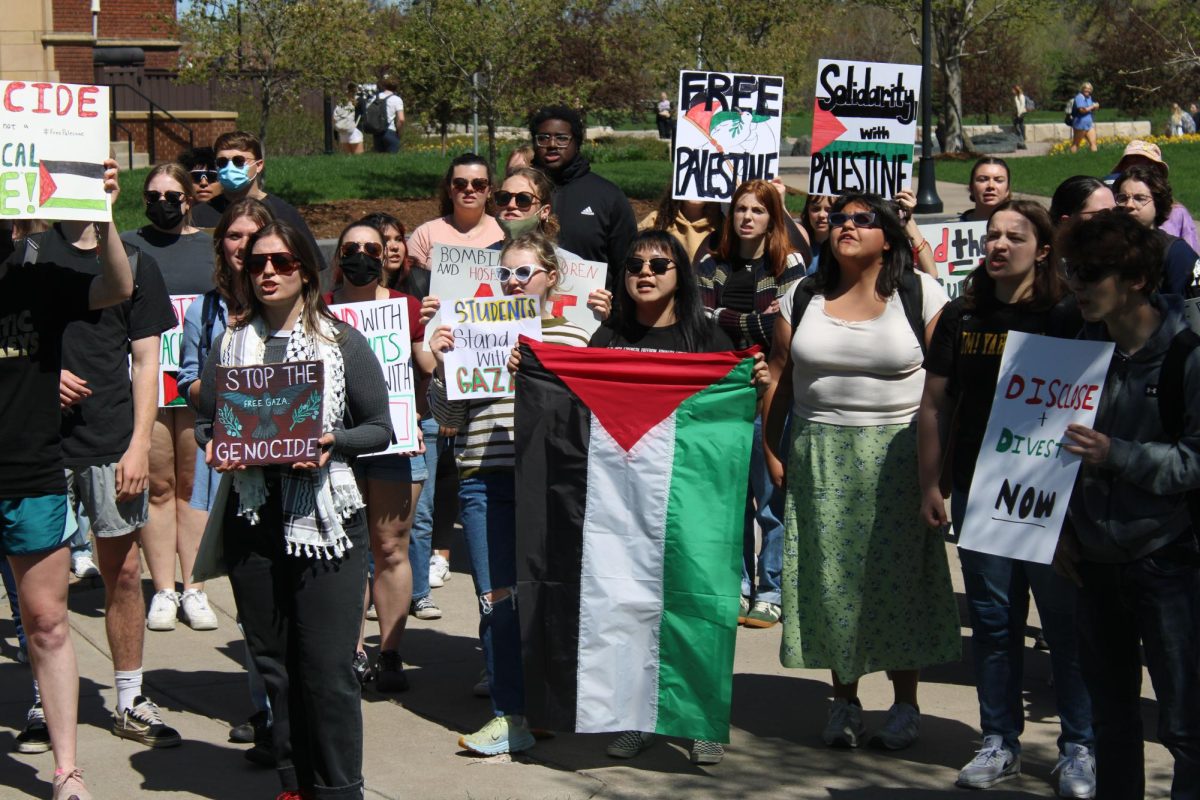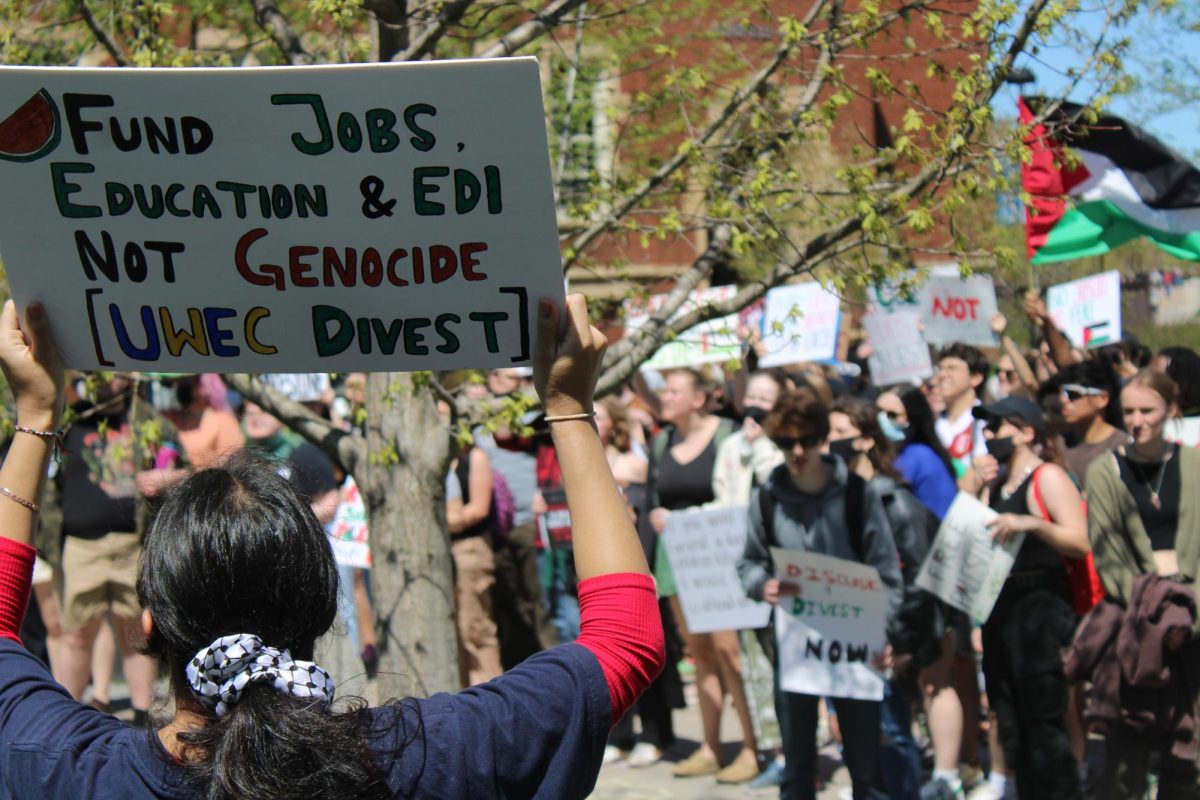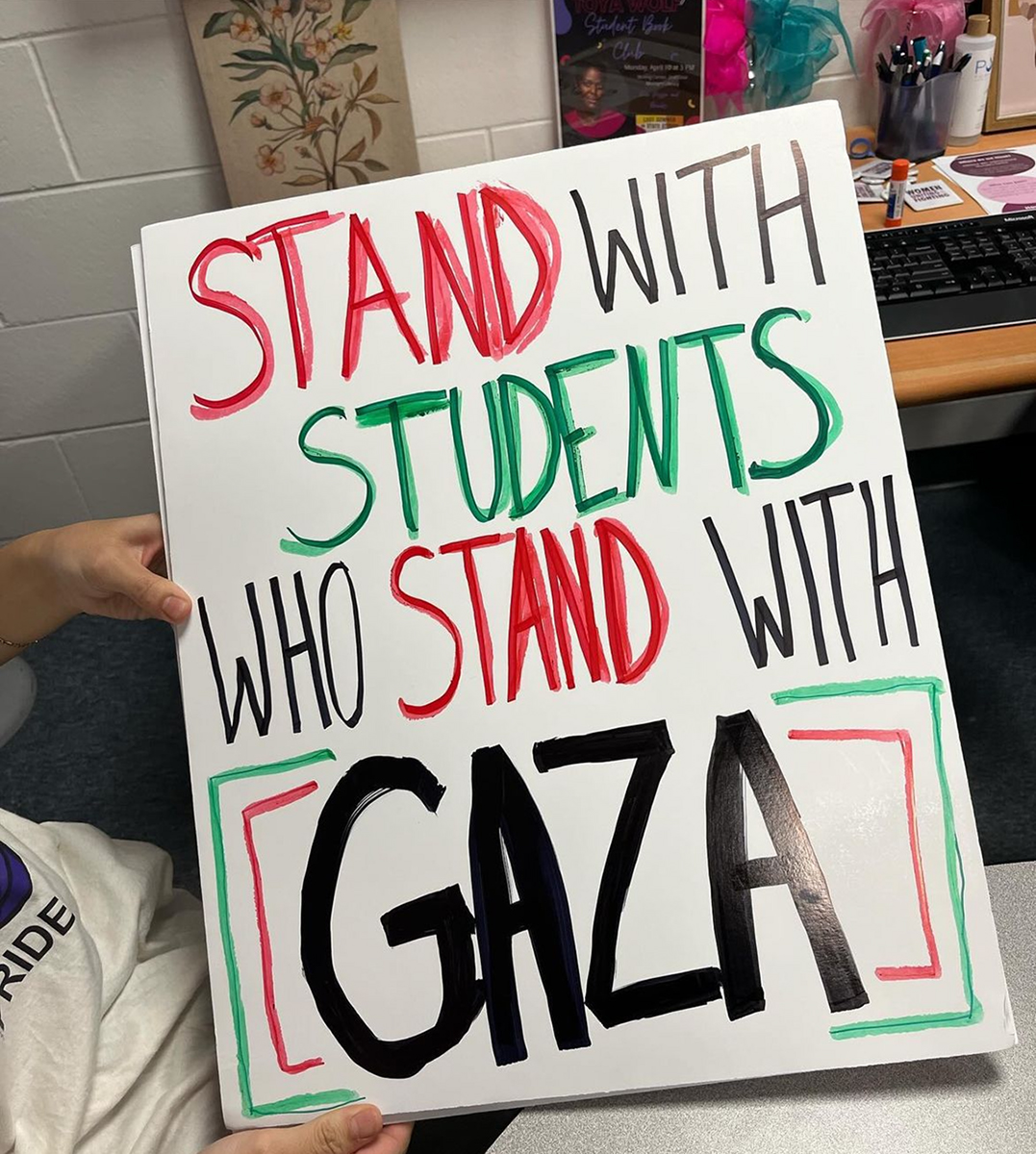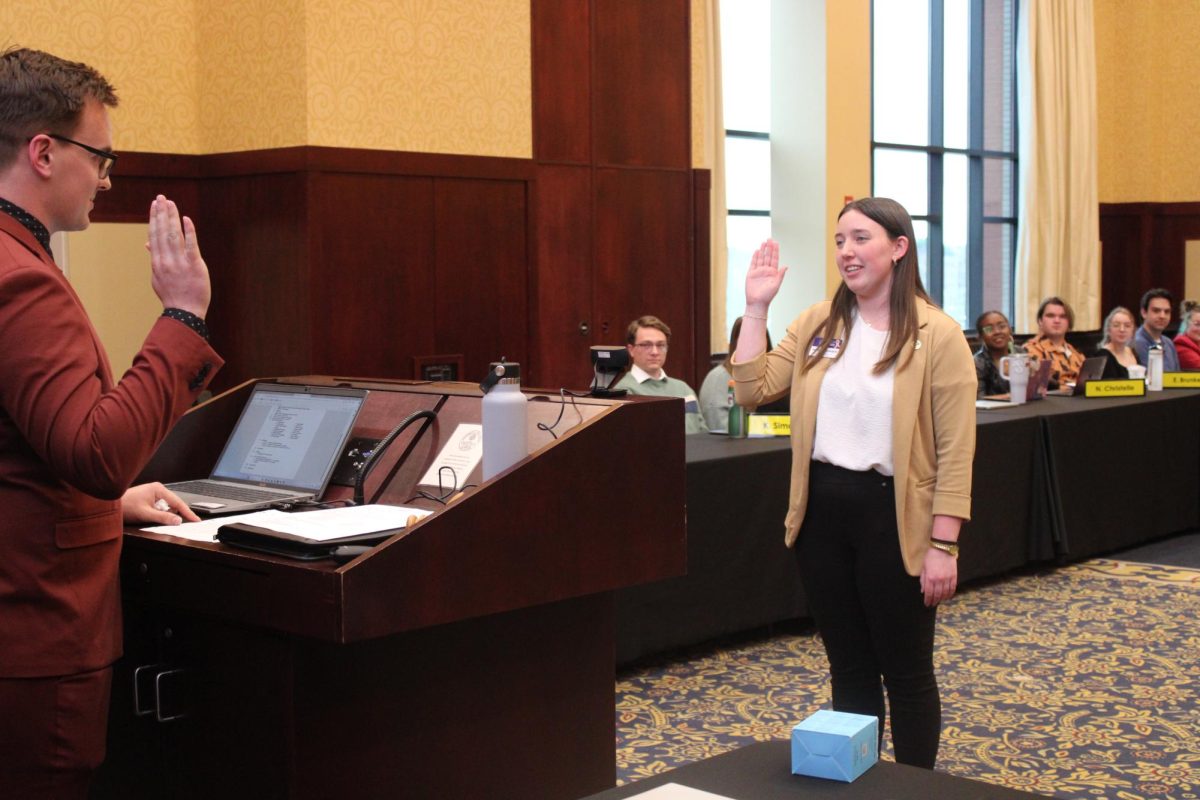Freshman Brian Reisinger arrived at a planning meeting for the upcoming International Roundtable to discover that he was the only American student there.
“I was told that it is unusual to have an American on the roundtable,” he said.
The Center for International Education is sponsoring an International Roundtable session at 4 p.m. Wednesday in the Arrowhead Room, Davies Center.
| “It is not some American-bashing roundtable.” –Steve Majstorovic Associate professor of political science |
The topic is titled “Should the United States Care What the Rest of the World Thinks? Foreign Policy and the 2004 U.S. Presidential Election.”
“The roundtable is to educate both the university community and the greater Eau Claire community,” said Steve Majstorovic, associate professor of political science, who will facilitate the roundtable with Assistant Professor of political science Stephen Hill.
Majstorovic asserted that the roundtable is not designed for indoctrination.
“It is not some American-bashing roundtable,” he said.
Instead, he said, the forum is designed as a marketplace of ideas and arguments.
“(International students) are interesting people,” he said. “They add a lot to my classes.”
| International Roundtable: “Should the United States Care What the Rest of the World Thinks? Foreign Policy and the 2004 U.S. Presidential Election” Time: 4 p.m. Date: Wednesday Place: Arrowhead Room, Davies Center Cost: Free |
Junior Nikola Naumoski, from Macedonia, will be speaking at the roundtable conveying the perspective of his home country.
He said he does not expect the United States to adhere to the demands of every little country.
What he does expect is that it consult with bigger countries such as China, Russia and the European Union before engaging in campaigns that would affect the world.
“It gives legitimacy to the action,” he said. “The world doesn’t see the action in Iraq as legitimate as previous actions such as Bosnia and Kosovo.”
It also is easier to solve a post-conflict situation if more countries are included, he added.
Reisinger said he plans to discuss how divisive the war in Iraq has been. He also plans to talk about what he thinks is faulty criteria for the war.
“(The criteria) could include so many other nations besides Iraq, including Iran, North Korea and even Israel,” he said.
He added that he does not agree with what he believes are the unilateral principles of the Bush administration.
“I don’t think it is the United States’ place to decide the fate of these nations.”






